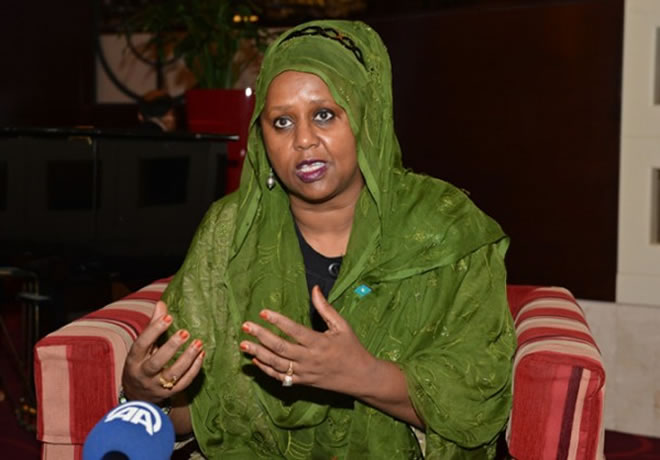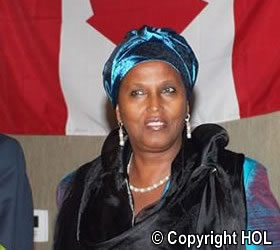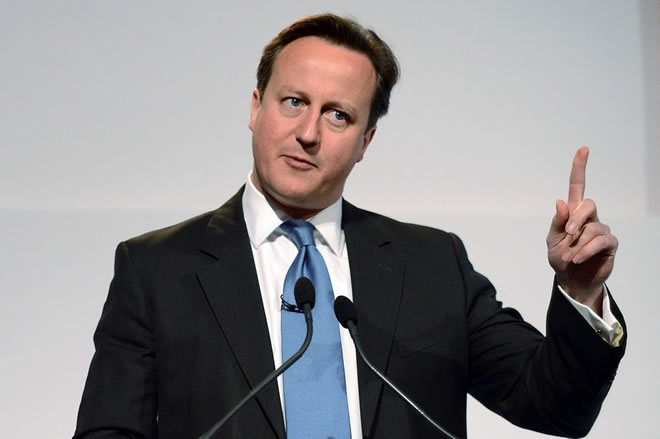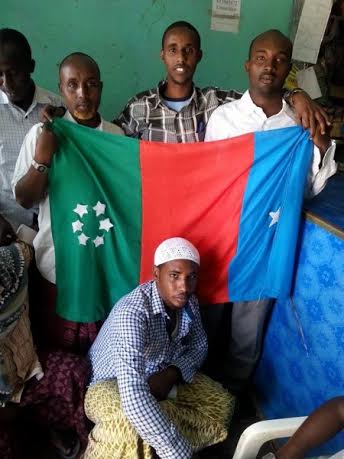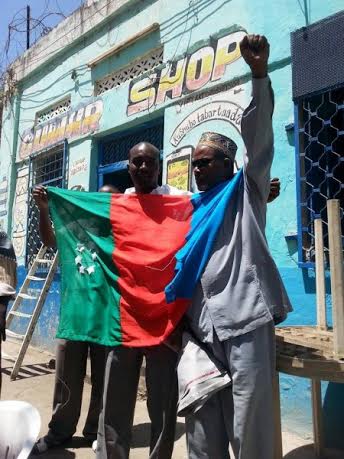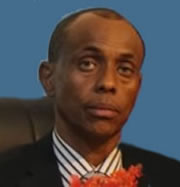 Opposition deputies reacted with joy after the
vote
Opposition deputies reacted with joy after the
vote
Ukrainian MPs have voted to oust
President Viktor Yanukovych and hold early presidential elections on 25 May.
The vote came after police stopped guarding presidential buildings, allowing
protesters in, and parliament made new high-level appointments.
Mr Yanukovych said it was a "coup" and vowed not to stand down.
And on a day of fast-moving events, prominent opposition leader Yulia
Tymoshenko was released from detention, hours after MPs authorised the move.
She left the hospital in the eastern city of Kharkiv where she had been held
under prison guard, and flew to Kiev, where she addressed the demonstrators in
Independence Square.
Ms Tymoshenko was freed following a vote by parliament on Friday demanding
her release.
She was sentenced to seven years in jail in 2011 after a controversial
verdict on her actions as prime minister.
Her supporters have always maintained this was simply Mr Yanukovych taking
out his most prominent opponent, and her release has always been a key demand of
the protest movement.
Continue reading the main story
BBC correspondents in Ukraine
Kevin Bishop @bishopk: Looks like Olexander
Turchynov, Rada Speaker, (Ukrainian Parliament), is acting head of state as
there is no prime minister, sacked earlier
Continue reading the main story
Duncan Crawford @_DuncanC: A huge shrine to the dead is
now on the edge of Independence Sq. Hundreds of flowers and candles.
Duncan Crawford
@_DuncanC:
.Yanukovych's official annual salary was reportedly anywhere between $30000 to
$115,000 a year. I wonder how he could afford a zoo etc..?
Continue reading the main story
Daniel Sandford
@BBCDanielS: Interfax say [Kharkiv
regional governor] Dobkin left Ukraine for Russia. Not much of a brave last
stand.
Daniel Sandford
@BBCDanielS:
The Kharkiv prison authorities did what parliament said, so at the moment
parliament is winning the power struggle. Your move Yanukovych
On Thursday, the bloodiest day of recent unrest, at
least 21 protesters and one policeman died.
Ms Tymoshenko told journalists at Kiev airport that those behind violence
"must be punished", the Interfax agency reports.
'Coup' denounced
The opposition is now in effective control of the capital Kiev, with Mr
Yanukovych in Kharkiv, near the Russian border, after travelling there late on
Friday night.
The Interfax news agency reported parliament speaker Oleksandr Turchynov as
saying Mr Yanukovych had been stopped by border police in an attempt to flee to
Russia and was now somewhere in the Donetsk region.
Earlier on Saturday, protesters walked unchallenged into the president's
office and residential compounds.
 Tymoshenko greeted supporters on her release from
detention in Kharkiv
Tymoshenko greeted supporters on her release from
detention in Kharkiv
 More funerals took place in the Maidan on Saturday
for those killed in this week's violence
More funerals took place in the Maidan on Saturday
for those killed in this week's violence
 Those suspected of being members of the security
services were attacked in central Kiev
Those suspected of being members of the security
services were attacked in central Kiev
 Protesters walked into Mr Yanukovych's official
residence near Kiev unopposed
Protesters walked into Mr Yanukovych's official
residence near Kiev unopposed
 Meanwhile in the eastern city of Donetsk, a new
separatist movement called the Eastern Front held a rally
Meanwhile in the eastern city of Donetsk, a new
separatist movement called the Eastern Front held a rally
The vote to "remove Viktor Yanukovych from the post of president of Ukraine"
was passed by 328 MPs.
Such ballots, passed by what is called constitutional majority, are binding
and enter into force with immediate effect, the BBC's Ukraine analyst Olexiy
Solohubenko reports.
Continue reading the main story
Analysis
 David Stern BBC News,
Kiev
David Stern BBC News,
Kiev
Events in Ukraine are moving at too fast a pace to provide any coherent
analysis that won't be obsolete in hours, if not minutes. So here is a list of
people and places to watch as the situation continues to develop - and twist and
turn:
Yulia Tymoshenko: The freed prime minister is a political force of nature.
But she is also divisive and, before she went into prison, her popularity
ratings were dropping. Many Ukrainians blame her in part for the chaos of the
post-Orange Revolution years, or see her as a member of Ukraine's corrupt
political elite. We will see if the last two years in prison have changed her or
the public's opinion of her.
Crimea: Ukraine's predominantly ethnic-Russian province is also the home to
Russia's Black Sea fleet, in Sevastopol. If President Viktor Yanukovych - or
Vladimir Putin - wants to start something, it could very likely happen here.
The Maidan: Will the protesters go home now? And what role will Ukraine's far
right play - not just the fighters of the Right Sektor, but also the
ultra-nationalist Freedom party, which has done much of the heavy lifting during
the protest movement?
In an address
televised before the vote to impeach him, Mr Yanukovych described events in Kiev
as a "coup".
He insisted he was the "lawfully elected president" and compared the actions
of the opposition to the rise to power of the Nazis in 1930s Germany.
In his address Mr Yanukovych also called a raft of votes in Ukraine's
parliament on Friday "illegitimate", claiming that MPs had been "beaten, pelted
with stones and intimidated".
However, he did admit that that some had left his Party of the Regions,
calling them "traitors".
President Yanukovych also said his ally, parliamentary speaker Volodymyr
Rybak, was forced to resign because he had been physically beaten.
Mr Rybak resigned on Saturday morning citing ill health, and was replaced by
Mr Turchynov, a Tymoshenko ally.
Another Tymoshenko ally, Arsen Avakov, was appointed interim interior
minister, replacing Vitaly Zakharchenko - who was sacked on Friday after being
blamed for the deaths of civilians in last week's crackdown on
protests.
Pact overtaken
Before the vote to oust Mr Yanukovych, Polish Foreign Minister Radoslaw
Sikorski - one of three EU ministers who mediated between the two sides this
week -
tweeted
that there had been "no coup in Kiev".
Crowds entered the grounds of President Yanukovych's country
house
Mr Sikorski, along with the German and French foreign ministers, presided
over talks that led to a pact on Friday between Mr Yanukovych and opposition
leaders which now seems to have been overtaken by events.
The deal followed several days of violence in which dozens of people died in
a police crackdown on months of protest. It called for the restoration of the
2004 constitution and the formation of a national unity government.
The agreement failed to end the protests overnight with huge crowds remaining
in the Maidan calling for Mr Yanukovych's resignation.
Russian Foreign Minister Sergei Lavrov said the deal had been "sharply
degraded by opposition forces' inability or lack of desire" to respect it and
accused "illegal extremist groups" of taking control of Kiev, Reuters
reports.
The protests first erupted in late November when President Yanukovych
rejected a landmark association and trade deal with the EU in favour of closer
ties with Russia.
Send your pictures and videos to yourpics@bbc.co.uk or text them to
61124 (UK) or +44 7624 800 100 (International). If you have a
large file you can upload here.
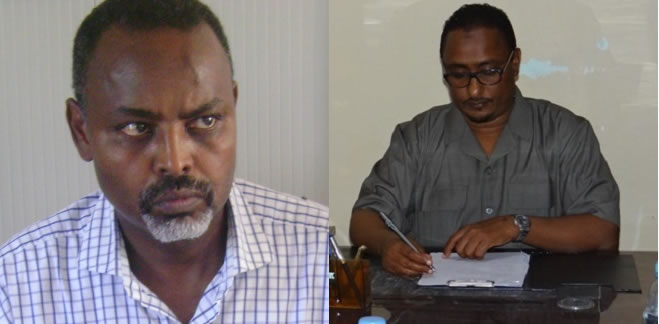 Khamiis, Feberaayo 27, 2014 (HOL) — Wareegto kasoo baxday xafiiska madaxweynaha Soomaaliya, Xasan Sh. Maxamuud maanta oo Khamiis ah ayaa guddoomiyaha gobolka Banaadir iyo duqa Muqdisho loo magacaabay Jen. Xasan Maxamed Xuseen (Muun-gaab) oo horay u ahaa guddoomiyaha maxkamadda ciidanka qalabka sida ee dowladda Soomaaliya.
Khamiis, Feberaayo 27, 2014 (HOL) — Wareegto kasoo baxday xafiiska madaxweynaha Soomaaliya, Xasan Sh. Maxamuud maanta oo Khamiis ah ayaa guddoomiyaha gobolka Banaadir iyo duqa Muqdisho loo magacaabay Jen. Xasan Maxamed Xuseen (Muun-gaab) oo horay u ahaa guddoomiyaha maxkamadda ciidanka qalabka sida ee dowladda Soomaaliya.



